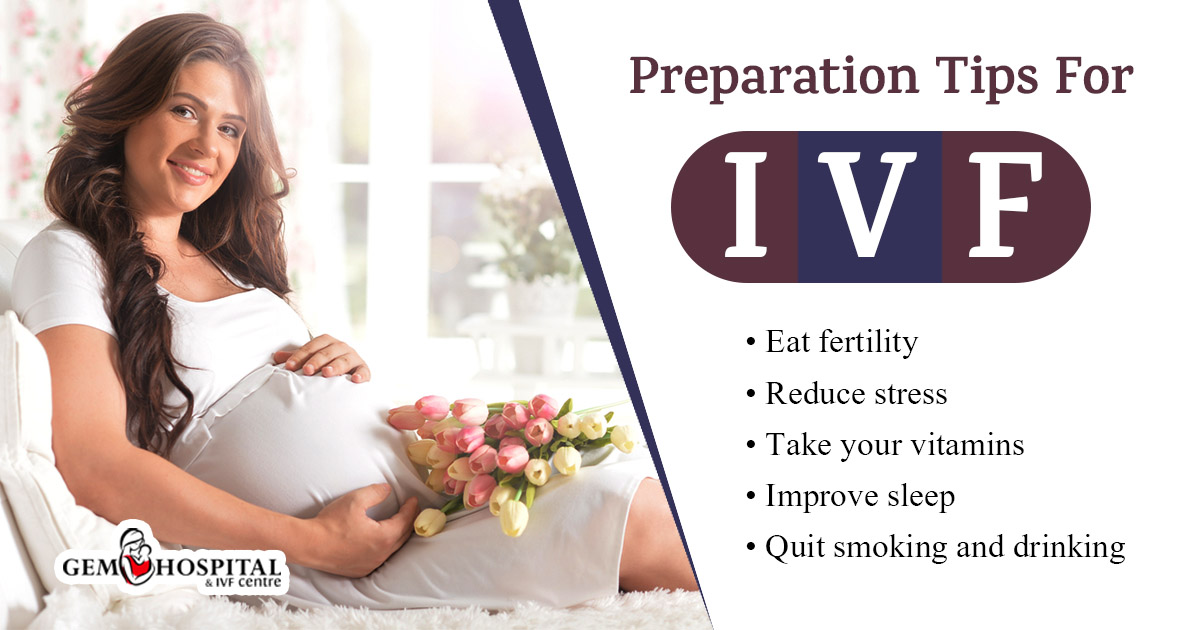Preparation tips for IVF
IVF treatment is beneficial for those who are experiencing infertility. Infertility is a term that is used to define the inability of a couple to conceive a baby naturally. This treatment is additionally known as In-Vitro Fertilization, so to get this treatment, you have to visit the IVF centers.

Here are certain ways to prepare your body for the IVF procedure.
- Eat fertility-enhancing foods
- Reduce stress
- Take your vitamins
- Improve sleep
- Quit smoking and drinking
Well, the preparation for IVF depends on the time. In this article, you will read how to prepare according to different time periods.
If You have 3 to 6 Months to Prepare for IVF
If you are planning to get IVF treatment after 3 or 6 months, then you have enough time to prepare your body for IVF. In addition to this, you will surely get the best results after the preparation of 3 months, because follicles or eggs take almost 3 months to mature. You may not know the quality of egg matters a lot, also give you positive results. In this time period, you have to talk to the doctor and get proper information about everything related to IVF preparation.
If You Have 1-2 Months to prepare for IVF treatment.
Quit smoking and drinking
If you are planning to undergo IVF within the next 2 months, then you have to stop smoking as well as limit your alcohol consumption. Since nicotine is too harmful to your ovaries and makes you unable to produce healthy eggs.
Take your vitamins
Along with this, you also need to take care of your nutrition too. You must take your vitamins properly for better and healthy pregnancy too. So, you must take high-quality prenatal supplements, these will help you to produce healthy eggs and will surely improve your body’s fertile environment. You have to start taking these supplements 2 months before trying to conceive a baby.
Must go with fertility improving foods
Yes, it is necessary to eat fertility-enhancing foods, so that you can simply conceive a baby without any problem. Essential foods include-:
- Royal jelly
- eggs
- sprouts
- fish roe
- seeds
- nettles
- nuts
- seaweed
- oats
- algae
- bone marrow
- caviar
- artichokes
- goji berries
- raw milk
- flax seeds
- oysters
- pollen
If You have only 2 Weeks to Prepare for IVF.
Improve sleep
In this condition, you have to take proper rest and sleep which contributes to sex hormones, ovulation, and sperm production too. Only adequate sleep matters a lot, so you have to take care of your sleeping habits.
Reduce stress
Taking too much stress may lead you to hormonal problems and makes you unable to produce healthy eggs. So, you must try breathing exercises, yoga, and meditation to reduce stress.
- ۰ نظر
- 11 February 21 ، 07:00
- ۱۸۱ نمایش


